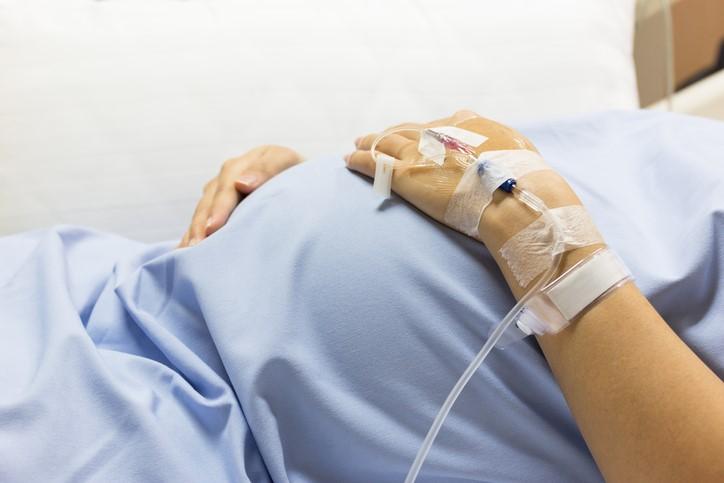A US Centers for Disease Control and Prevention (CDC) study published today in Morbidity and Mortality Weekly Report found that pregnant women with COVID-19 are at increased risk for hospitalization, intensive care unit (ICU) admission, and mechanical ventilation but not death.
Researchers studied the disease surveillance data of 8,207 pregnant women infected with the novel coronavirus and 83,205 nonpregnant women aged 15 to 44 years from Jan 22 to Jun 7 to determine whether the immunologic and physiologic changes of pregnancy put them at risk for more severe outcomes.
About one third (31.5%) of pregnant women infected with SARS-CoV-2, the virus that causes COVID-19, had been hospitalized, versus 5.8% of their infected nonpregnant peers, but the researchers were unable to distinguish between hospitalization for coronavirus-related symptoms versus those for pregnancy-related procedures such as delivery.
After adjustment for age, underlying conditions, and race/ethnicity, pregnant women were 5.4 times more likely to be hospitalized, 1.5 times more likely to need intensive care, and 1.7 times more likely to require mechanical ventilation than nonpregnant women.
Sixteen of 8,207 pregnant women and 208 of 83,205 nonpregnant counterparts died of the novel coronavirus, or 0.2% for both groups.
Hispanic, black pregnant women more affected
When stratified by age, hospitalization, ICU admission, receipt of mechanical ventilation, and death were reported more often by women aged 35 to 44 years than by those aged 15 to 24 years, whether or not they were pregnant. When stratified by race/ethnicity, the rate of ICU admission for pregnant Asian women was 3.5%, compared with 1.5% in all pregnant women.
Overall, 97.1% of pregnant women and 96.9% of nonpregnant women reported COVID-19 symptoms. While both reported similar percentages of cough (more than 50%) and shortness of breath (30%), pregnant women were less likely to report headache, muscle aches, fever, chills, and diarrhea and more likely to have chronic lung disease, diabetes, and heart disease.
Among pregnant women, 46.2% were Hispanic, 23.0% were white, 22.1% were black, and 3.8% were Asian, versus 38.1%, 29.4%, 25.4%, and 3.2%, respectively, of their nonpregnant peers. "Although data on race/ethnicity were missing for 20% of pregnant women in this study, these findings suggest that pregnant women who are Hispanic and black might be disproportionately affected by SARS-CoV-2 infection during pregnancy," the authors said.
They also noted that the higher-than-expected percentage of COVID-19 infection in pregnant women might be attributable to higher rates of testing in this group because they are likely to have frequent healthcare visits.
"To reduce occurrence of severe illness from COVID-19, pregnant women should be counseled about the potential risk for severe illness from COVID-19, and measures to prevent infection with SARS-CoV-2 should be emphasized for pregnant women and their families," the authors wrote.
Specifically, they recommended adhering to a prenatal care schedule, limiting contact with others, physical distancing when interactions are needed, having at least a 30-day supply of any medications on hand, and talking with their healthcare provider about how to avoid infection during the pandemic.






















